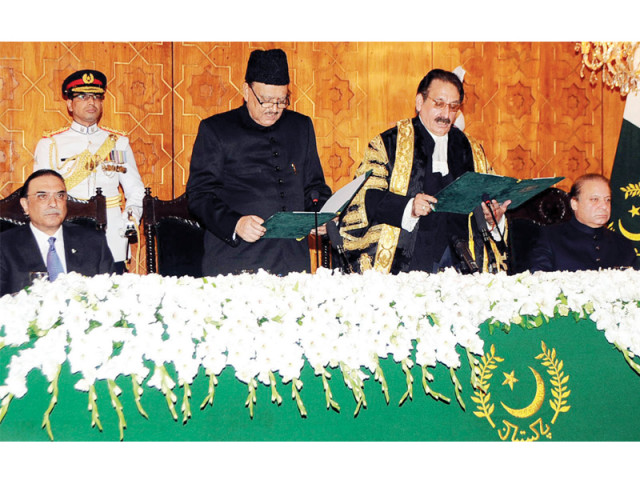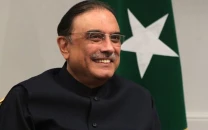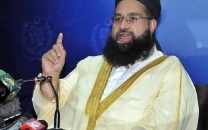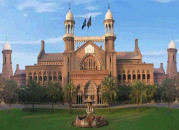Enter the president: Mamnoon assumes office as 12th head of state
Former president Zardari attended the oath-taking ceremony.

Flanked by Prime Minister Nawaz Sharif and outgoing president Asif Ali Zardari, President Mamnoon Hussain takes oath from Chief Justice Iftikhar Muhammad Chaudhry at the Aiwan-e-Sadr. PHOTO: APP
President Mamnoon Hussain took oath of office as Pakistan’s 12th head of state on Monday, culminating transfer of affairs of governance from one elected government to another for the first time in the history of the country.
A businessman from Karachi, 73-year-old Mamnoon was elected on July 30 by an electoral college comprising the National Assembly, the Senate and four provincial legislatures for a five-year term starting from the day he assumes charge.
Although Pakistan People’s Party (PPP) had boycotted the presidential elections, former president Asif Ali Zardari attended the swearing-in ceremony at the Presidency – the official residence and workplace of the head of state.
Chief Justice Iftikhar Muhammad Chaudhry, who is due to retire in December this year, administered the oath.
Mamnoon Hussain served as the governor of Sindh for a brief period before Nawaz Sharif’s elected government was toppled by Musharraf’s military coup in 1999. He remained a true PML-N loyalist and despite not having an electoral power base, was nominated as a surprise candidate by the PML-N leadership for the president’s slot. Many believe his loyalty has made him a trustworthy candidate for the party.

Asif Ali Zardari, during his tenure, relinquished most presidential powers that he had inherited from military rulers, making the Constitution quasi-presidential through successive amendments.
This included the notorious constitutional provision 58-2B that had disposed off two PPP and PML-N governments in the past.
During the last government, a set of constitutional amendments were made to restore the parliamentary system under which the president is the ceremonial head of state.
Though former president Zardari had handed over executive powers to the prime minister, he called all shots including the nomination of prime ministers and other key party decisions as the head of the PPP.
His active involvement in political affairs of his party was challenged in the courts and was forced to give an undertaking to abdicate his party office as co-chairman of the party while being president of the country.
Contrary to Zardari, Mamnoon is expected to adopt a low key role as far as political matters are concerned.
The office of president was created for the first time in the 1956 Constitution, replacing governor-general. The 1973 Constitution adopted a completely parliamentary form of government with president being a mere ceremonial head. However, the president holds the power of civilian commander-in-chief of the armed forces with chairman, joint chiefs of staff committee, as his principal military adviser, but military appointments and key confirmations in the armed forces are made by the prime minister.
Almost all appointed officers in the judicial branches, military and legislatures require the executive confirmation from the prime minister, whom the president must consult, by law. However, the powers to pardon and grant clemency rest with the president but that too after being requested by the prime minister.
Published in The Express Tribune, September 10th, 2013.



















COMMENTS
Comments are moderated and generally will be posted if they are on-topic and not abusive.
For more information, please see our Comments FAQ